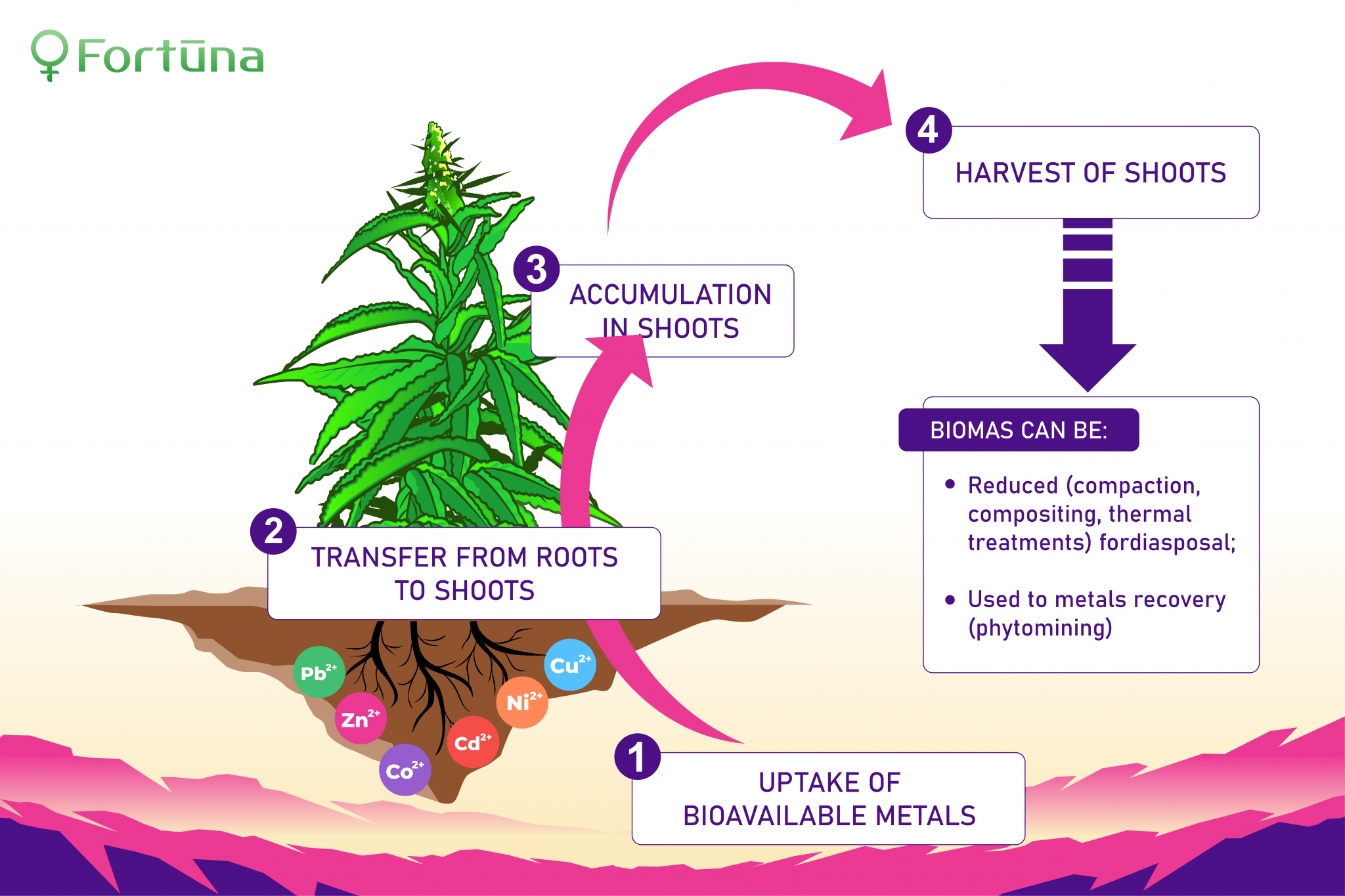
- Hemp Farming
-
by gu
Hemp phytoremediation is an exciting phenomenon with a wide range of applications. Not only is the biomass incredibly valuable, but growing hemp outdoors improves soil quality, as well. Specifically, hemp produced in toxic soils efficiently absorbs hazardous materials, thus ridding the earth of dangerous contaminants. This process is called phytoremediation, and its potential is astounding.
What is Phytoremediation?
Phytoremediation is the process of using plants to absorb toxic contaminants in soil and groundwater. There are many different types of phytoremediation mechanisms used to remove, stabilize, transfer, or destroy dangerous toxins. Common toxins plants might withdraw from the ground include things like heavy metals, explosives, pesticides, and volatile organic compounds of VOCs.
The most common plant used for phytoremediation purposes are poplar trees, which remove pesticides and fertilizers out of streams and groundwater systems. However, there are many plants used to remove soil and water toxicity from the ground, and hemp phytoremediation is one of the best options available.
Hemp as a Phytoremediator
Hemp cleans soil through a process called phytoextraction or phytoaccumulation. In other words, hemp extracts toxins from the soil — along with nutrients and water — and stores them in the leaves and stalks of the plant. This method is especially effective at removing heavy metals like copper (Cu), cadmium (Cd), and nickel (Ni). Some even suggest that hemp effectively removes radiation, though the specifics of the corresponding study are unclear.
Hemp, in particular, is an attractive phytoremediation option for many reasons, the first of which is its ability to clean the land some six feet deep. Whereas many plants’ root systems utilize only the top few feet of ground, hemp roots reach deep into the earth six feet or more, keeping pace with the plant’s upward development. Hence, hemp phytoremediation can remove toxins deep within the soil quicker than trees or other plants comparatively.
Additionally, hemp grown on toxic soil retains its strong fibrous structure. According to a study published in the Journal of Industrial Crops and Products, hemp shows no evidence of fiber damage resulting from growth on contaminated land. There is some concern regarding its use in clothing and consumable products. However, hemp fiber grown from toxic soil is still an attractive commodity. Potential applications of contaminated hemp biomass include biofuels like ethanol or heat burner fuel for electricity.
Hemp Phytoremediation and CBD
Fibrous hemp is a great candidate for phytoremediation, but the CBD market may stand to benefit, too. Early studies showed that all plant parts hold all the toxic metals pulled from the soil. However, these initial findings were that of industrial (non-medical) hemp plants. Recent research, on the other hand, suggests that hemp flower does not retain toxicity. Whereas leaves, stems, and seeds are not considered safe for consumption, hemp flowers that are grown on contaminated land do not maintain the trend.
But that’s not even the best part! Research also shows that CBD hemp used for soil remediation produces 18 times more cannabidiol than control crops. Better yet, THC levels do not become elevated following toxic soil stress. Yes, there is still concern regarding the safety of consuming CBD from contaminated soil. However, the initial research on hemp phytoremediation is promising.
Final Thoughts about Hemp Phytoremediation
Hemp phytoremediation is yet another in a long list of hemp benefits. Just a few of hemp’s many applications include clothing and fiber, building supplies, biofuel, beauty products, food, medicine, and more! In addition, hemp serves as a phytoremediator capable of cleaning the soil and restoring life to desolated areas. Though we do not yet understand the full scope hemp phytoremediation applications, the future of hemp farming looks fruitful.
Are you thinking about starting a CBD hemp farm? Give us a call. We’d love to join you on your journey.


Greg
February 17, 2023 at 10:49 amHello. I ordered some CBD hemp seeds for my farm last year but I’m wondering what you might have for feminized or regular hemp seeds I could use for phytoremediation. I’d want something that would effectively pull toxin from my soil without needing to water much, pest and mold resistant. What do you recommend, I don’t care about cannabinoids productiom as much as something that just grows really well by itself.
Thank you,
Greg Waszak